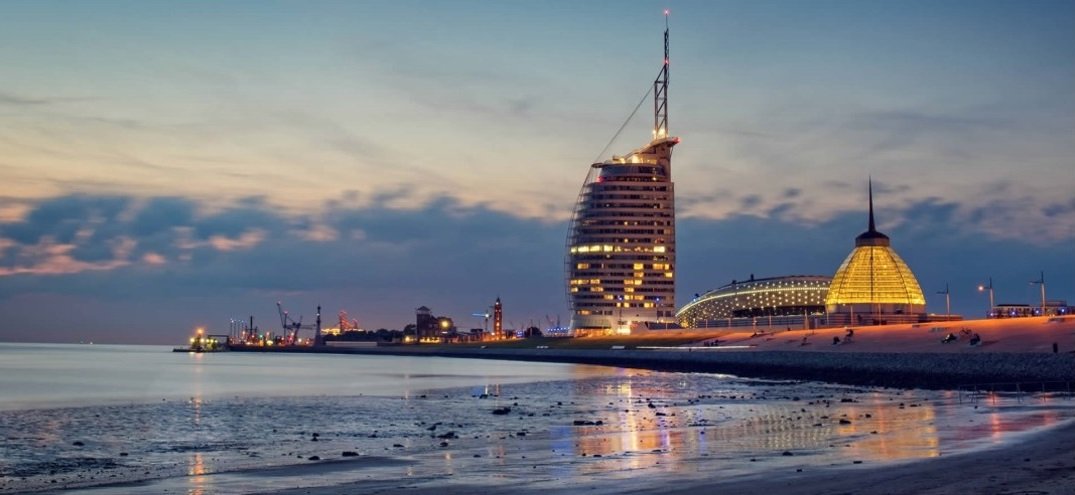Welcome to Bremerhaven, the largest German City at the North Sea coast with about 119.000 inhabitants. Bremerhaven offers a vivid port and seafaring history, modern fish experience and an inspiring variety of science and knowledge. It is part of the European Metropolitan Region Bremen / Oldenburg, surrounded on the landside by the county of Cuxhaven.
Since its founding in 1827, Bremerhaven has been shaped as a maritime business location. Thanks to its favourable location on the Weser river and North Sea and centuries of history as a maritime trading centre, Bremerhaven has become one of the most important locations in Germany and around the world for the maritime economy. The port of Bremerhaven is the sixteenth-largest container port in the world and the fourth-largest in Europe, one of the world’s leading automobile transhipment hubs, and an attractive logistics centre. The modern fish and food industry, with internationally known brands, together with a complete value-adding chain for the entire fish and foodstuff segment, have been the hallmark of the city for decades. With its green ports, the sustainable food industry, the offshore wind industry and its small and medium-sized enterprises, Bremerhaven’s economic structure offers an ideal framework for the settlement of companies from the green tech sector. Bremerhaven provides a broad range of food-related expertise in the areas of research, education, marketing and product quality. With over 3,6000 jobs, the food processing sector is one of the biggest economic sectors in Bremerhaven. In fish processing, Bremerhaven holds a top position nationwide; the large number and diversity of start-ups prove that the food industry is a highly innovative field of the future.
Cities2030 partner organizations participating in the Bremerhaven CRFS Lab
Three project partners are involved in the Bremerhaven CRFS Lab.
In this project, the Department of Economics, Tourism and Science (BRE, P15) has the opportunity to strengthen Bremerhaven as a centre of science in an interdisciplinary team and to support and communicate research in an innovative and socially relevant way.
The Verein zur Forderung des Technologietransfers an der Hochschule Breverhaven Ev (TTZ, P16) also wants to provide modern technologies for small and medium-sized enterprises. To show the benefits of CRFS, new data for all three aspects of sustainability must also be collected. In food production, the ecological and social aspects must be considered and presented transparently. For this, techniques and systematics need to be learned.
Biozoon GMBH (BZN, P17) will target the achievement of an improved food innovation capacity and nutrition related know-how, focusing among others in concepts addressing the specific requirements of elderly (e.g with mastication and swallowing problems)

